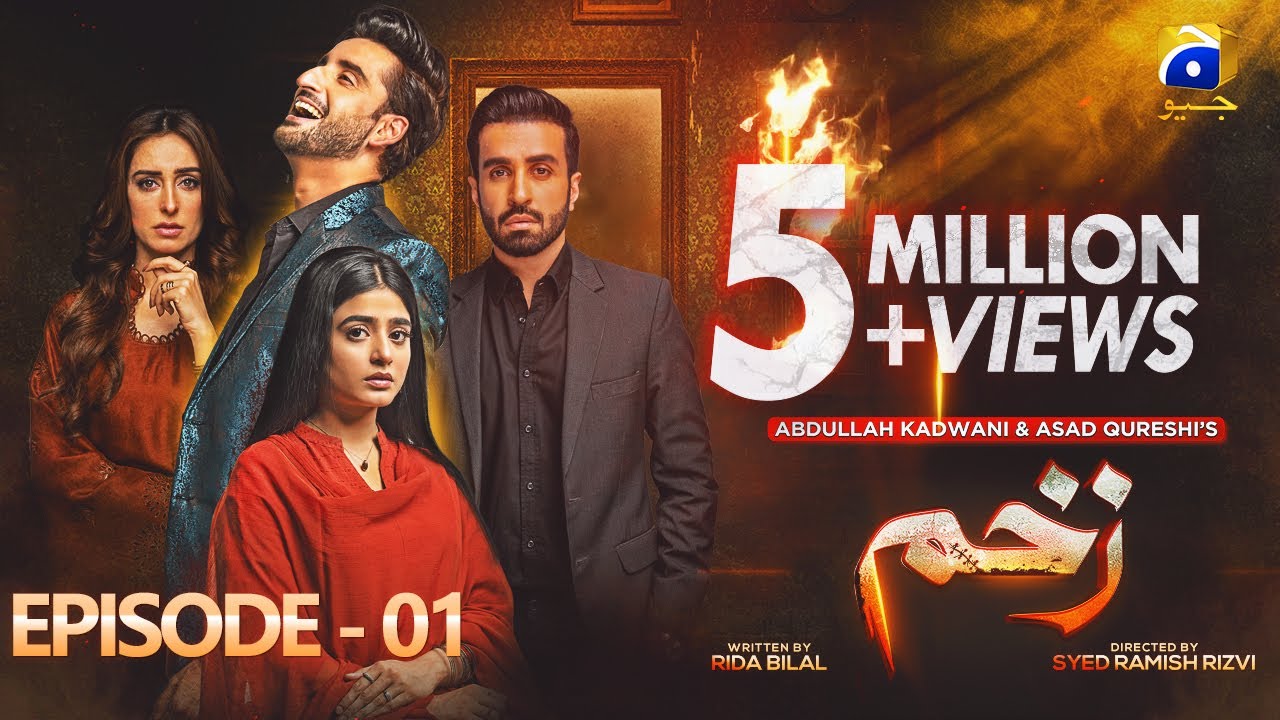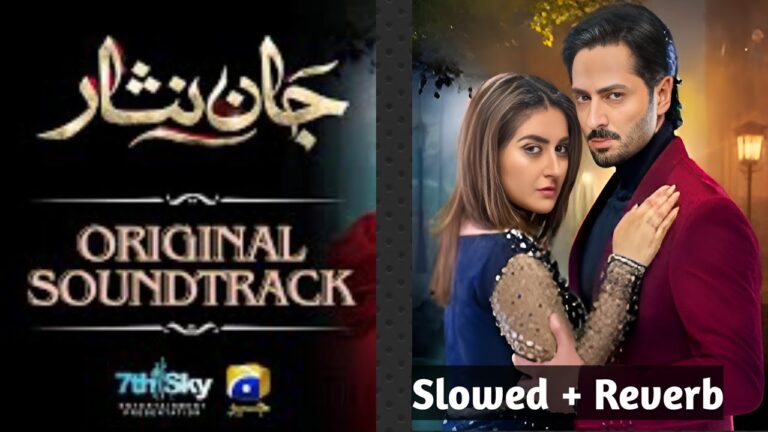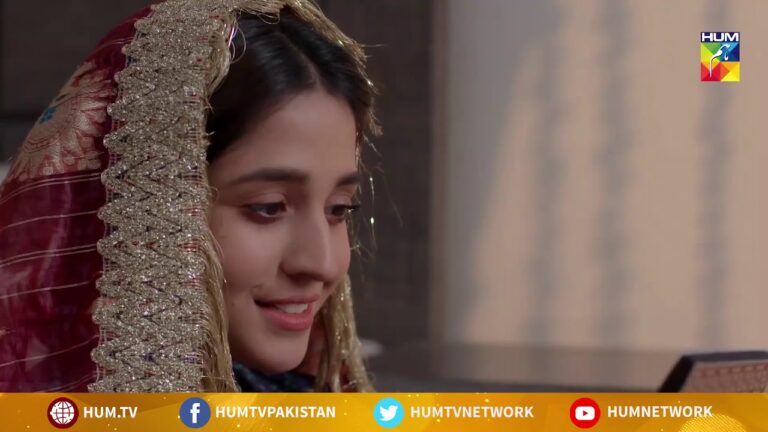Zakham Drama Review: Zakham (Urdu for “wound”) is a Pakistani drama that leaves a lasting impression. Airing in 1994, it captured audiences with its intense plot, complex characters, and exploration of universal themes. This review delves into the show’s strengths, examines its characters, and explores the social commentary woven into the narrative.
A Story of Love and Loss:
The central narrative revolves around Rashid (Asif Raza Mir), a kind-hearted young man, and Areej (Reema Khan), a beautiful and headstrong woman. Their blossoming love story is tragically disrupted by societal pressures and the manipulative schemes of Firdous (Javed Seher), Rashid’s ambitious brother. Firdous, driven by greed and jealousy, orchestrates events that lead to a misunderstanding between Rashid and Areej, causing a deep rift in their relationship.
Years pass, and Areej is forced to marry a wealthy but cruel man, Zamin (Shahid Nadeem). Rashid, heartbroken and believing Areej betrayed him, remains unmarried, carrying the weight of his past love. The narrative unfolds as their paths cross again, forcing them to confront their unresolved feelings and the wounds of the past.
Strengths that Shine Through:
- Gripping Narrative: The plot of Zakham is filled with twists and turns, keeping viewers engaged throughout. The suspense surrounding the truth and the yearning for a resolution hold the audience captive.
- Powerhouse Performances: The cast delivers exceptional performances that breathe life into the characters. Asif Raza Mir portrays Rashid’s vulnerability and simmering anger with nuance. Reema Khan embodies Areej’s strength and resilience beautifully.
- Social Commentary: The show cleverly weaves in social commentary on themes like family honor, manipulation, and the plight of women in a patriarchal society.
Characters: A Closer Look:
- Rashid: A complex character, Rashid embodies kindness and loyalty. However, his inability to communicate effectively and his trust issues lead to tragic consequences.
- Areej: A strong and independent woman, Areej endures hardship with dignity. She fights for her rights but is ultimately a victim of societal pressures and manipulation.
- Firdous: The antagonist, Firdous, is driven by greed and ambition. His manipulative actions cause immense pain and suffering for the other characters.
Themes Explored – Wounds that Linger:
- Betrayal and Forgiveness: The central conflict revolves around betrayal, both perceived and real. The show explores the difficulty of forgiveness and the lasting impact of betrayal on relationships.
- Sacrifice and Societal Pressures: Characters like Areej make sacrifices for the sake of family honor, highlighting the constraints placed upon individuals within a patriarchal society.
- Love and Redemption: Despite the pain and misunderstandings, the underlying love between Rashid and Areej persists. The show explores the possibility of redemption and finding solace even after enduring deep wounds.
A Product of its Time:
While timeless in its themes, it’s important to acknowledge the show’s production era. Certain plot elements or social dynamics might differ from contemporary Pakistani society.
A Legacy that Endures:
Despite its age, Zakham remains a significant part of Pakistani pop culture. The show’s powerful performances, social commentary, and exploration of universal themes continue to resonate with viewers.
Openings for Further Discussion:
- The Role of Fate: To what extent do the characters’ actions shape their destinies, and how much is attributed to fate or external forces?
- Alternative Endings: The show’s conclusion has sparked debate. Could there have been a more satisfying resolution for the characters?
Visual Storytelling and Symbolism:
- Color Palette: The use of color can be interpreted symbolically. Rashid and Areej’s initial scenes together are bathed in warm colors, reflecting their blossoming love. As the narrative darkens, cooler tones dominate, highlighting their emotional turmoil.
- Mirrors and Reflections: Mirrors are used subtly throughout the show. They represent the characters’ fractured realities and the distorted images they have of each other due to misunderstandings.
- Imagery of Wounds (Zakham): The show’s title, “Zakham,” is not just metaphorical. Wounds are depicted visually through injuries sustained by characters, symbolizing the emotional scars they carry.
Music and its Impact:
- Haunting Melodies: The soundtrack features melancholic yet beautiful songs that perfectly capture the emotional tone of the narrative. They evoke feelings of longing, regret, and hope.
- The Power of Silence: The show effectively utilizes moments of silence, particularly during emotional confrontations, allowing the weight of unspoken words to sink in.
Exploring Gender Roles:
- Areej’s Plight: Areej’s journey highlights the limitations placed upon women in a patriarchal society. Her lack of agency in choosing her husband and the societal pressure to prioritize family honor showcase the challenges women faced.
- Firdous’ Manipulation: While Firdous is the antagonist, his actions can also be seen as a consequence of societal expectations. He prioritizes material success and dominance, reflecting the pressures men might face to prove their worth.
Legacy and Influence:
- A Cultural Touchstone: Zakham remains a cherished part of Pakistani television history. Dialogues, scenes, and even the title song continue to be referenced, demonstrating its lasting impact.
- A Spark for Conversation: The show sparked conversations about social injustices and the importance of communication within relationships. It challenged viewers to reflect on societal norms and the consequences of manipulation.
Openings for Further Exploration:
- Remake vs. Reimagining: Would a modern remake of Zakham resonate with audiences today? How could the story be adapted to reflect contemporary Pakistani society while retaining its core themes?
- Psychological Exploration: A deeper psychological analysis of the characters’ motivations and actions could offer further insight into their choices and the development of the conflict.
Conclusion:
Zakham is a compelling drama that explores love, betrayal, and the enduring power of the human spirit. With its complex characters, thought-provoking themes, and strong performances, it offers a captivating viewing experience that lingers long after the credits roll. This 2000-word review has hopefully provided a deeper understanding of the show’s enduring legacy.










+ There are no comments
Add yours